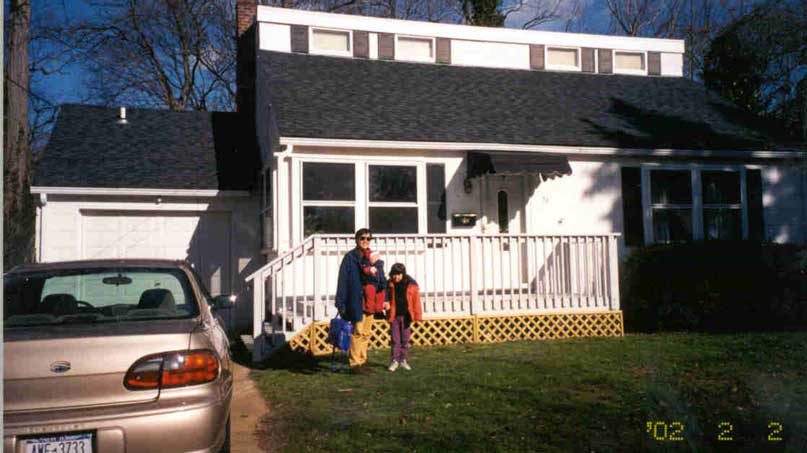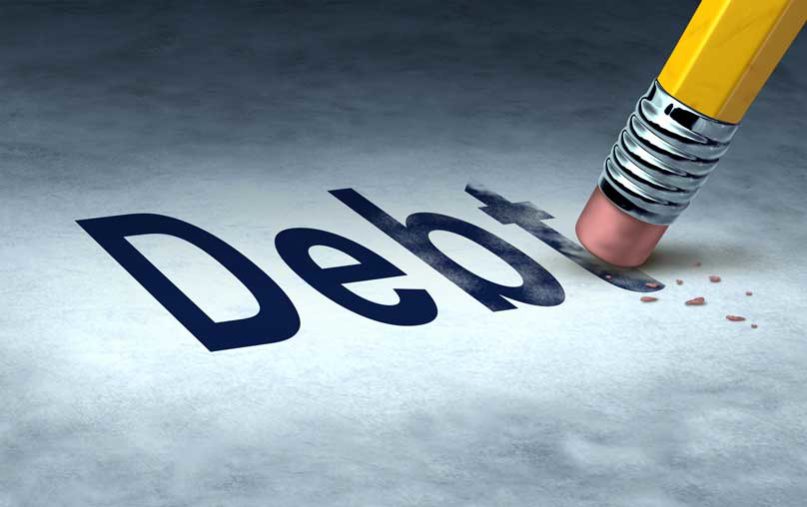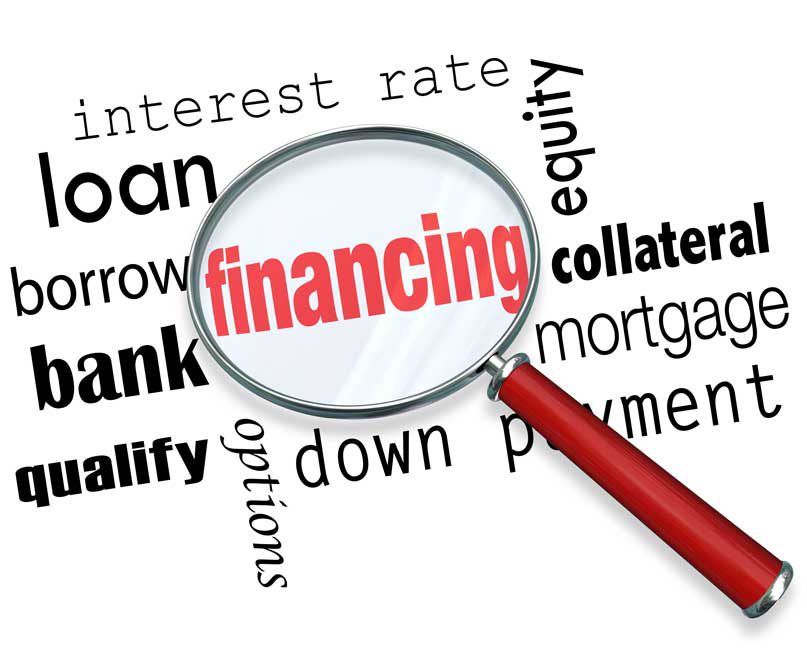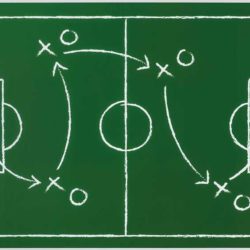When we bought our first international rental property (Condo Boom in Tamarindo, Costa Rica), we decided to do a cash-out refi of another investment property to buy it all cash. Damn Millennial asked us a question on Twitter that we also asked ourselves:
Out of curiosity why did you choose the cash out refi over the Heloc? The way I understand it the cash out is more expensive isn’t it? As you must refinance the total amount and then pay fees on that. Vs. HELOC you just pay for appraisal and opening a line.
Oh, Damn Millennial, I mulled over the exact same issue, and thanks for prompting us to go into more detail on the topic!
What is a HELOC
For those new to the HELOC, it is a home equity line of credit, and is exactly what it sounds like – a line of credit you can draw against the equity in a home that you own.
When we bought our very first property in Little Silver, New Jersey in 2002, a rise in real estate value enabled us to get a $150,000 HELOC, which then enabled us to buy our first rental property. We sold our New Jersey property in 2014 so closed that HELOC, but have since gotten two more HELOCs on other properties we still own.

Our NJ house, just after we bought it.
Flexibility is a big advantage of HELOCs
Because HELOCs are lines of credit, you only pay interest on what you draw down. HELOCs often carry an annual fee to keep the line open, so you may pay something even when your balance is zero, but it’s a small amount. For example, on one of our HELOCs, we paid $200 per year for a $64,000 line, and the fee was waived when we drew a certain amount.
In addition to using our New Jersey HELOC to fund our first real estate investment, I used that line to smooth out our cash flow when I was getting my coaching business started in 2008, and we used that line for ad hoc expenses, such as maintenance issues.
We may use a HELOC to pay for college expenses. The flexibility to access tens of thousands of dollars when needed without going through a mortgage application process each time is a big advantage of HELOCs to other types of loans.
HELOCs are not always available
However, HELOCs are not available to just any property. We were able to get a HELOC on our New Jersey property because the rise in home prices gave us enough additional equity in the property to borrow against.
Lenders will typically issue HELOCs only up to 70% of a home’s appraised value (sometimes the limit is 75% but sometimes it is just 65%). If you have a property where you put 10-20% down, and it hasn’t appreciated much or you haven’t paid enough principal down, then you won’t have enough equity in the home to qualify for a HELOC.
Furthermore, lending qualifications for HELOCs can be more restrictive. The lender who issued our two other HELOCs only lends to owners with a maximum of four investment properties. We now have 14. Another lender, who works with owners beyond four investment properties, only does mortgages (which includes cash-out refinances) not HELOCs.
HELOCs have some structural disadvantages

In addition to the limited availability, HELOCs are variable rate loans.
Our HELOCs were tied to the prime rate, which was great when interest rates were super low, but in a rising interest rate environment like the one we have now, our interest rate was ticking up .25% with each rate hike. A .25% increase doesn’t sound like a lot, but on a $100,000 HELOC, that’s an additional $250 per year, and multiple interest rate hikes can happen within a single year.
Furthermore, unlike mortgages which can extend for 15 or 30 years, HELOCs are typically open for just five to ten years at a time, after which you need to reapply.
HELOCs can also be called (i.e., closed!) at any time that the lender feels like there isn’t enough equity in the property. Our first HELOC for the New Jersey property was called in 2009, though we were able to quickly open another one, courtesy of a helpful lead from our business network.
We actually closed down one of our two post-New Jersey HELOCs last year because our five-year period ended, and we now have more than four properties, so our lender wouldn’t extend. Our other HELOC expires next year, and we are researching alternatives for that one – most likely a cash-out refinance.
Refinancing offers fixed rates, longer terms, and easier availability

On the flip side, a cash-out refi negates the downsides of a HELOC. We did a cash-out refi for two of our investment properties in order to pool enough money to pay for our Costa Rica property outright.
Interest rates were fixed for 30 years at 4.625% versus 6.25% variable for five years for the HELOCs we had open. Our national mortgage lender of choice was available to do the deal because they lend to owners of up to 10 mortgaged properties (we have 16 properties, but mortgages on just 7 of them).
While I’d love to have the flexibility of a HELOC, we couldn’t get one for this deal and got great terms on the cash-out refi.
Costs are a toss-up
Application fees on a HELOC are typically lower than on a cash-out refi, but rates are higher. So depending on how long you are planning on holding the debt, you may be better off paying the higher upfront costs of a cash-out refi to get the longer paydown and lower, fixed rate.
You have to do the math. You also want to do the math on whether you want to buy down the interest rate, how much cash you want to pull out during the refi, and whether you want to pay closing costs upfront or roll them into the loan.
Not all of these options will be available – it depends on the lender and how much equity you have in your property – but these are some of the decisions you need to make when you opt for a cash-out refi.
Our choice for cash-out refi
In the cash-out refi or HELOC debate, we had no choice but to pick the cash-out refi for our Costa Rica purchase.
However, given the timeframe of our investment (we want to hold Condo Boom for the foreseeable future), it is likely that we would have picked a cash-out refi anyway. The longer term and lower fixed interest rate are more important for a long-term hold.
The volatility and significant start-up costs of a vacation rental also made locking in the loan characteristics desirable to us.
======
UPDATE: Based on a couple of comments to this post, I realized a key point about HELOCs needs to be highlighted if you’re considering this option for your rentals:
Eligibility for a HELOC is based, not just on having enough equity in the property, but also on having enough credit worthiness for the line – i.e., the lender needs to know you’re good for what you borrow and will be able to pay it back.
If you have $1 MM in equity in a property but you have no provable income and a terrible credit score, you’re still not likely to get a HELOC on that property because once you spend the line, how will you make payments? Therefore, if you’re considering a HELOC, you need to check the amount of equity you can borrow against and your credit profile.
======
You need to do your own calculation on cash-out refi or HELOC based on your situation and investment goals.
Have you pulled out equity from an investment property? What type of loan did you use?


 We are Scott and Caroline, 50-somethings who spent the first 20+ years of our adult lives in New York City, working traditional careers and raising 2 kids. We left full-time work in our mid-40’s for location-independent, part-time consulting projects and real estate investing, in order to create a more flexible and travel-centric lifestyle.
We are Scott and Caroline, 50-somethings who spent the first 20+ years of our adult lives in New York City, working traditional careers and raising 2 kids. We left full-time work in our mid-40’s for location-independent, part-time consulting projects and real estate investing, in order to create a more flexible and travel-centric lifestyle.  Financial independence and early retirement is not something we originally focused on, but over time realized it was possible. Our free report,
Financial independence and early retirement is not something we originally focused on, but over time realized it was possible. Our free report, 








Hi I just found your blog and seem like you have some pretty good information and rental portfolio. I haven’t pull out any equity from my 3 rental properties yet, but did consider a couple of times. Since I work oversea it’s hard to do real estate, but later on I want to add more rental properties in my portfolio. I’m debating if I should pay off 1 of my rental properties. So that I can use that rental income and build up a down payment to buy another rental property. Thanks for the information and if you got any suggestion let me know. Thanks The expat investor
Hi Jay, thanks for reading and for writing in! I am not a financial adviser and can’t give individual recommendations, but I talk about my own thoughts for prepaying my mortgage debt in this post: https://costaricafire.com/finance/what-order-to-pay-off-debt/ The post is more about how to decide which debt to pay off, but in the paragraph on “Why pay off mortgage debt early”, you’ll see some reasons why it’s a good thing to prepay.
However, one thing that stops me from prepaying more debt is that, once I give the money to the bank, I don’t have that money to use elsewhere unless I pull it out again (which entails costs). I’m not planning on buying more real estate anytime soon so prepaying debt is attractive to me. However, if I were going to buy soon, I would want to put my cash in a liquid account, not back into one of my houses where I couldn’t access it so easily.
we don’t own any rentals but have owned our house outright for 4-5 years now. we opened a heloc because it was free and we don’t intend to use it but it’s there is we need some massive repair. i’ve thought about a cash out refi in retirement vs. something like a reverse mortgage as we have no kids to leave the place to. it’s really a discussion for a nuclear option in case we ran out of money but i sure would like to spend that equity before we cash in the chips of life.
Thats definitely the nice thing about the HELOC – once you have the line of credit open, if you ever need it, you don’t have to scramble!
Hi Freddy, to Scott’s point about “not scrambling” I would apply for the HELOC well before retirement as you’ll need your income to qualify. Eligibility is based not just on the equity but your ability to repay it. With a reverse mortgage the lender gets the house at the end of it, but a HELOC lender doesn’t have that assurance (unless you default and then they have a costly foreclosure experience). So HELOC lenders will want to know you can pay before they approve you to draw.
Great overview of the two products and your direct experience with them. I’ve also considered opening a HELOC in order to have access to some cash at a pretty low rate, but as of now I haven’t done it. Mostly because I’m not entirely sure if or how I would use it…
Hi Freedom 40, keep in mind that eligibility for a HELOC is based on both the equity in the collateral property, as well as your income and credit application overall. So if things might change with your income situation or credit score (or if the economy turns and credit everywhere gets tighter) you may not be able to get a HELOC, even if the property has equity. It’s one reason to open a HELOC well before you would use it.